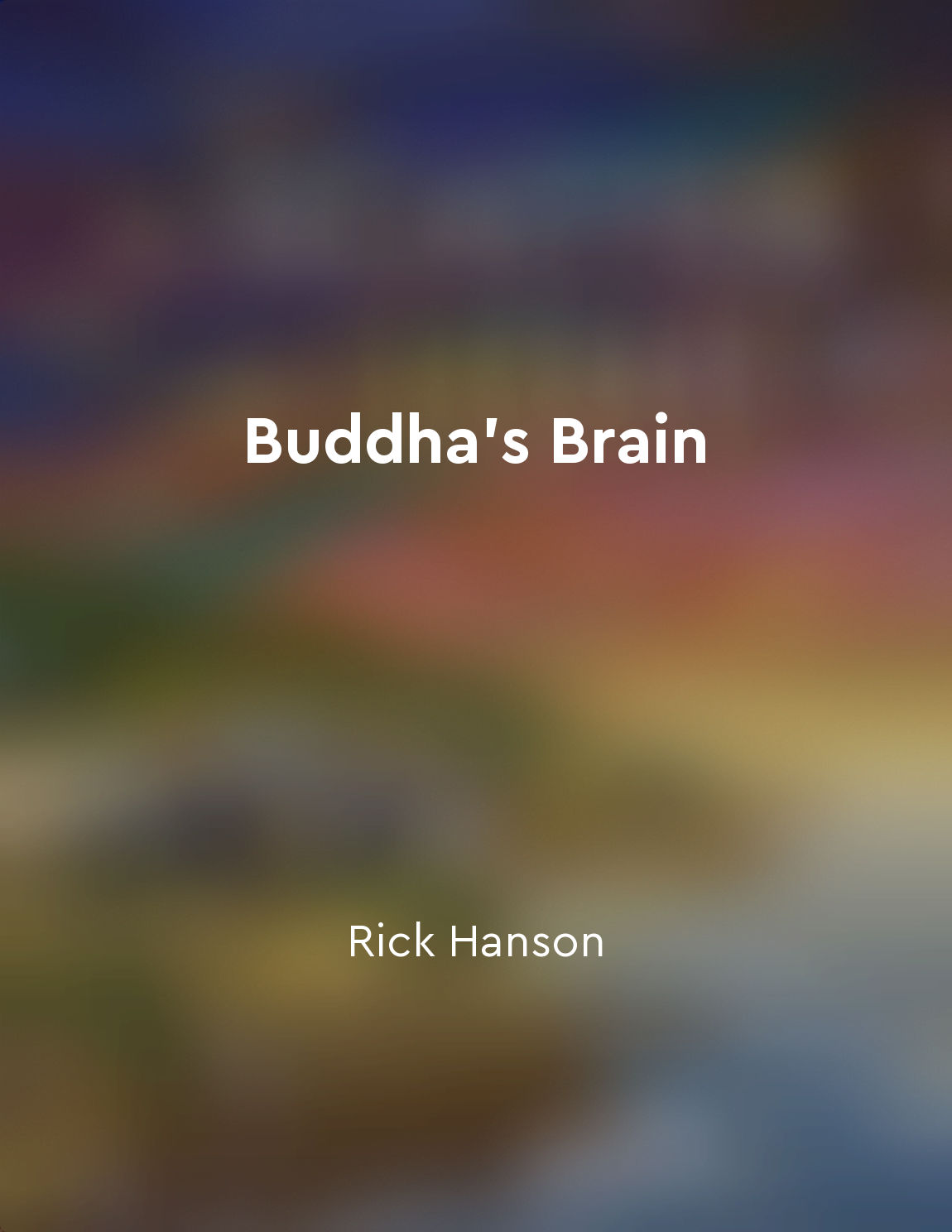Benefits of altruism and kindness from "summary" of Where Buddhism Meets Neuroscience by The Dalai Lama
Altruism and kindness are fundamental to the human experience, crucial for building connections and fostering harmony in society. When individuals act selflessly and with genuine compassion towards others, they not only benefit the recipient but also experience a sense of fulfillment and inner peace themselves. This reciprocal relationship highlights the interconnectedness of all beings and emphasizes the importance of cultivating empathy and altruistic behaviors. Research in neuroscience has shown that acts of kindness and altruism activate regions of the brain associated with reward and pleasure, leading to an increase in feelings of happiness and well-being. This neurological response serves as a powerful motivator for individuals to engage in altruistic actions, as they experience firsthand the positive effects of their behavior on both themselves and others. Furthermore, practicing kindness and altruism has been linked to enhanced physical health, reduced stress levels, and improved overall mental well-being. This holistic approach to self-care underscores the idea that caring for others is not only beneficial for the recipient but also has a profound impact on one's own health and happiness. In the Buddhist tradition, altruism and kindness are considered essential components of spiritual growth and enlightenment. By cultivating a mindset of compassion and selflessness, individuals can break free from the cycle of self-centeredness and egoism, ultimately leading to a deeper sense of connection with all living beings.- The concept of altruism and kindness serves as a guiding principle for living a meaningful and fulfilling life. By prioritizing the well-being of others and practicing acts of compassion and generosity, individuals can create a more harmonious and compassionate world for themselves and future generations.
Similar Posts
Love is a skill that can be developed and strengthened over time
Love, as we have come to understand it, is not just a fleeting emotion that comes and goes as it pleases. It is not solely base...
Set clear goals and work towards achieving them
When we have a clear goal in mind, we are more likely to achieve it. Goals give us direction and purpose, guiding our actions a...

Practice gratitude for the abundance in your life
The secret to a fulfilling life is to appreciate what you already have. It's easy to get caught up in the pursuit of more - mor...
Brain plasticity and mental training
The concept of brain plasticity and mental training is a fascinating area of study that has gained increasing attention in rece...
The Five Aggregates are the components of personal identity
The Five Aggregates play a crucial role in understanding personal identity in Buddhism. These aggregates are form, feeling, per...

Let go of preconceived notions to understand the truth
To understand the truth, we must let go of our preconceived notions. We tend to see things through the filter of our beliefs, a...

Focus on the present moment
When we talk about focusing on the present moment, we are essentially speaking about the practice of mindfulness. This concept ...

Practice acts of kindness and generosity towards others
One powerful strategy that can reliably increase happiness is to practice acts of kindness and generosity towards others. When ...
Mindfulness allows us to savor each moment
The practice of mindfulness is a powerful tool that can help us fully appreciate and enjoy the present moment. By being fully p...

Find joy in the journey, not just the destination
The idea of finding joy in the journey rather than solely focusing on the destination is a fundamental principle of happiness. ...

